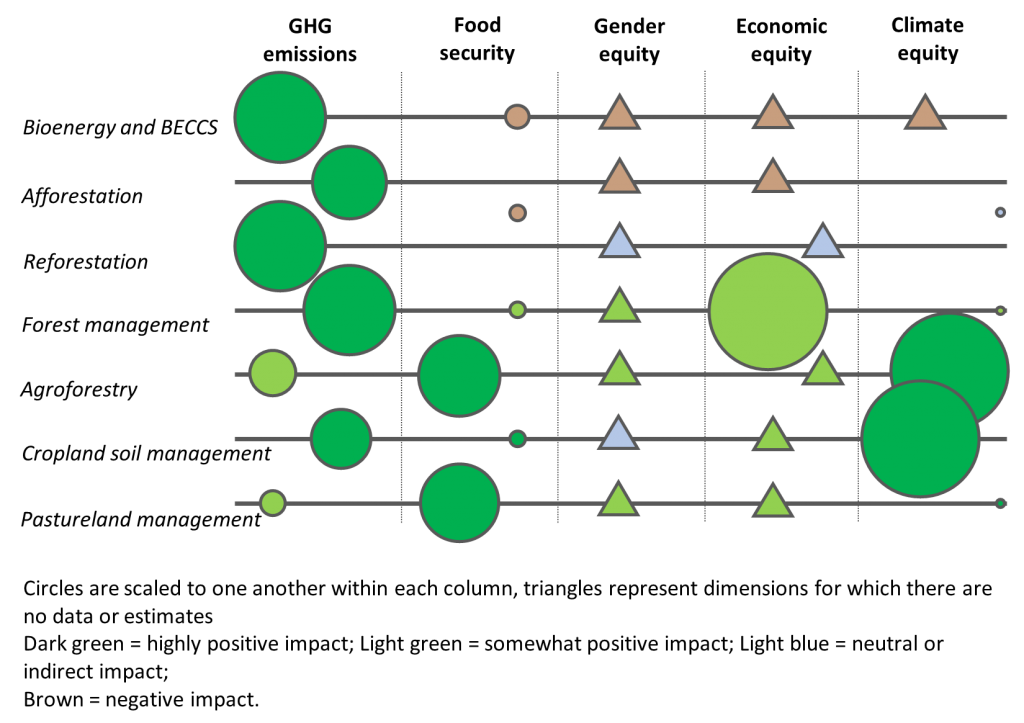For the first two weeks of November 2021, global political leaders, civil society, scientists, and many other will come together in Glasgow, Scotland for the 26th UN Climate Change Conference of Parties (COP26). Discussions will focus on the future, and commitments will be made to decrease greenhouse gas emissions and increase support for climate adaptation strategies around the world. These discussions build upon the existing knowledge base about the drivers, dynamics and impacts of climate change on many sectors. JG staff have contributed to this knowledge base through several recent projects focused broadly on equity and power dynamics in climate action.

In summer 2020, Kristal authored a report for Oxfam America entitled Zero Hunger, Zero Emissions: Land-Based Climate Change Mitigation, Food Security, and Equity. The report summarizes the evidence base on the impacts of land-based climate mitigation strategies on emissions, food security, and gender, economic and climate equity, all of which are focal areas of the United Nations Sustainable Development Goals (SDGs). The report synthesizes the evidence base with the goal highlighting the potential for synergies and trade-offs in impacts across these focal areas. The overall findings of the report highlight the strong synergies in impacts that sustainable land management practices in forests and agricultural systems can have, in contrast to land-use practices that are primarily oriented toward carbon sequestration.
The equity implications of land-based climate mitigation strategies have been a continued focus of Oxfam International, and JG staff led the analytical portion of a second report, released in August 2021, focused on the potential impacts of corporate net-zero commitments and nationally determined contributions (NDCs) of individual countries to the targets set by the Paris Agreement of the UN Framework Convention on Climate Change (UNFCCC), which convenes the COP meetings. The report, titled Tightening the Net: Net zero climate targets – implications for land and food equity, highlights the limitations of relying on land-based carbon credits or offsets generated through planting trees (reforestation and afforestation) to meet net-zero goals. Land is a fungible resource, and the analytical portion of the report, led by JG staff, provides quantitative estimates of the land area needed globally to sequester the amount of carbon earmarked offset through land-based carbon credits in the net-zero commitments of corporations in key sectors. The report and its implications were featured in The Guardian in August 2021.
The use of carbon credits and the voluntary carbon markets in which they can be purchased is an emerging focus of equity-oriented work on climate mitigation impacts. The recently announced Voluntary Carbon Markets Integrity Initiative (VCMI) is currently convening key stakeholders across the supply and demand sides of the carbon markets to develop guidance on the use of carbon credits in net-zero commitments. JG staff recently led the analysis and writing of a report that summarizes stakeholder feedback on the initial goals, priorities and approach of VCMI (the report can be found here: https://vcmintegrity.org/wp-content/uploads/2021/10/Synthesis-Report_Final.pdf). One key takeaway across much of the stakeholder feedback was the need to follow the science-based mitigation hierarchy, which emphasizes the primacy of emissions reduction and abatement over and before any other climate mitigation actions, including the use of carbon credits, is undertaken.